USING A SENSEMAKING APPROACH TO DOCUMENT GENDERED MIGRATION EXPERIENCES FOR VENEZUELAN WOMEN AND GIRLS IN LATIN AMERICA

By: Susan Bartels and Belen Rodriguez
Background
Approximately 6.1 million Venezuelans are currently displaced because of the geopolitical and economic crisis within their country. During forced migration, Venezuelan women and girls face gender-based violence (GBV) risks such as intimate partner violence (IPV), early unions, sexual assault, and harassment, as well as forced sex work, sexual exploitation, and transactional sex to access basic goods and services. Like other parts of the world, COVID-19 exacerbated these risks due to increased economic strain, living in quarantine with potential abusers, reduced security, and limited mobility due to public health restrictions.
The International Organization for Migration (IOM) and Queen’s University in Kingston (Canada) have been collaborating on a joint initiative to produce mixed-methods data regarding the GBV risks faced by Venezuelan women and girls. The project’s purpose was to improve the safety, well-being, and sexual and reproductive health of female Venezuelan refugees and migrants through more efficient data collection and analysis allowing for more responsive programming.
Methodology
To achieve our objective, we used an innovative ‘sensemaking’ (SM) approach with the Spryng.io software. SM is based on the premise that storytelling is a natural way for people to convey complex information and make sense of their experiences and the world around them. More details about the project’s methodology are provided in our first blog post. Additionally, in July 2022 team members visited eight locations in Ecuador, Peru, and Brazil to host workshops with service providers (seven workshops with 120 service providers in total) and community engagement sessions (14 focus group discussions with a total of 116 Venezuelan refugees and migrants, including two groups with Indigenous community members and two groups with members of the LGBTQ+ community).
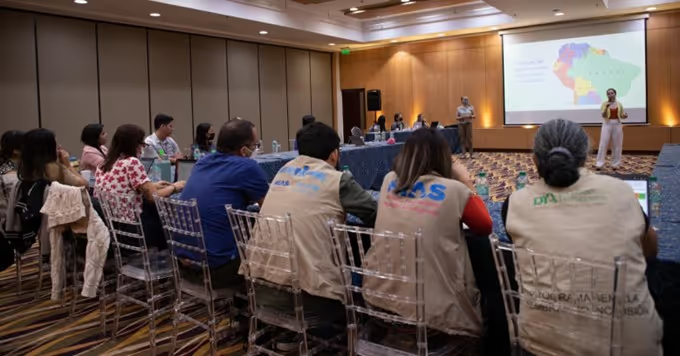
Overview of Study Results
Of the 9,339 Venezuelan participants interviewed using the sensemaking approach, almost half were interviewed in Brazil (48%). The overall population consisted of approximately 78% women, and 61% of the participants rated themselves as poor or very poor. Respondents in Brazil tended to interpret their shared migration experiences more positively (41.8% positive/very positive vs. 19.0% in Ecuador vs. 11.7% in Peru). Participants had been displaced for longer in Peru (32.1% greater than 3 years) and Ecuador (30.4% greater than 3 years) vs. 14.6% in Brazil. Those in Ecuador felt the impact of COVID-19 more negatively (78.8%) than those in Brazil (66.5%) and Peru (49.5%). The overall pattern of migration highlighted that those in eastern Venezuela tended to migrate to Brazil while those in western Venezuela tended to migrate through Colombia to Ecuador or Peru.
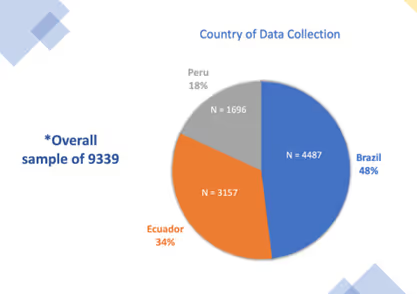
From the prioritized thematic analyses conducted thus far, we provide an overview of findings on two main topics:
Gender-based Violence (GBV)
Respondents described sexual exploitation such as survival sex, transactional sex, sex trafficking, and sex work, in addition to sexual abuse and exploitation of minors, intimate partner violence, sexual assault, rape, sexual harassment, physical/verbal/psychological abuse, near-death experiences, and deaths. GBV perpetrators were characterized as ‘gatekeepers’ within or between countries (e.g. border officials, taxi/truck drivers), law enforcement agents within host communities (e.g. military and police), or opportunistic perpetrators including smugglers, landlords, traffickers, and employers. Family members/friends and strangers also frequently perpetrated GBV. High-risk locations for GBV included border crossings, unsupervised trails, sleeping on the street/outdoors, and working in locations where alcohol was served. Many sexual exchanges were clearly exploitative with women having no other options to survive and with the male perpetrators often being in a position of relative power. Sex was most often exchanged for transportation and/or for basic survival needs like food and shelter. Transactional sex led to poor mental health, stigmatization of Venezuelan women as sex workers, sexually transmitted infections, and pregnancies. Child abuse was also frequently reported and LGBTQ+ refugees and migrants were found to be at particularly high risk of GBV. Many refugees and migrants did not report GBV due to a perceived environment of impunity, and even when reported, cases were often not investigated or went unpunished by local authorities.
Human Trafficking
Sex trafficking was the most common form of potential human trafficking discussed by participants and included being either forced or coerced into sex work, kidnapped, or recruited through false job postings or opportunities (through fake modeling agencies for example). Many women described being recruited for trafficking purposes when selling candy or cleaning windshields on the streets. Participants also described trafficking for labour exploitation, which included not being paid for work, not receiving the promised pay, unsafe working conditions, as well as sexual harassment and abuse in the workplace. Some cases suggestive of labour trafficking also led to sex trafficking. In addition to being a Venezuelan migrant/refugee woman or girl, being a minor or a member of the LGBTQ+ community was also identified as risk factors for trafficking. There were examples of potential human trafficking in all nine study locations.
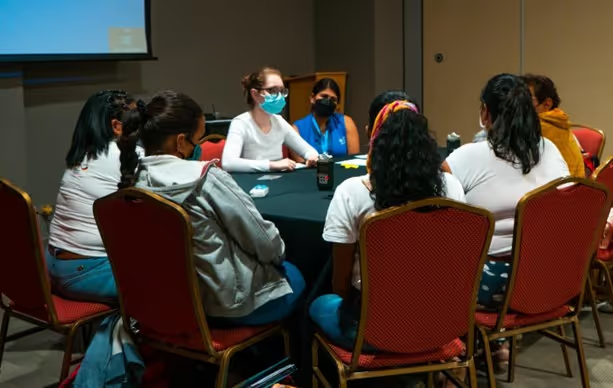
Findings shared promptly with service providers
Experiences of GBV were commonly described with significant resultant harms to affected Venezuelan women and girls. Within weeks of data collection, early findings were shared with service providers responding to the Venezuelan crisis to help mitigate the risks of GBV while also informing services and programs to better meet refugees’/migrants’ needs. More comprehensive results will be formally published as peer-reviewed articles in the coming months. Additional analyses are also ongoing including on pregnancy, the disproportionate care burden on women, experiences of LGBTQ+ refugees/migrants, adolescent experiences during migration, early marriages/unions, and experiences of refugees/migrants with disabilities.
Stay updated
Sign up for our newsletter to receive regular updates on resources, news, and insights like this. Don’t miss out on important information that can help you stay informed and engaged.
Related articles
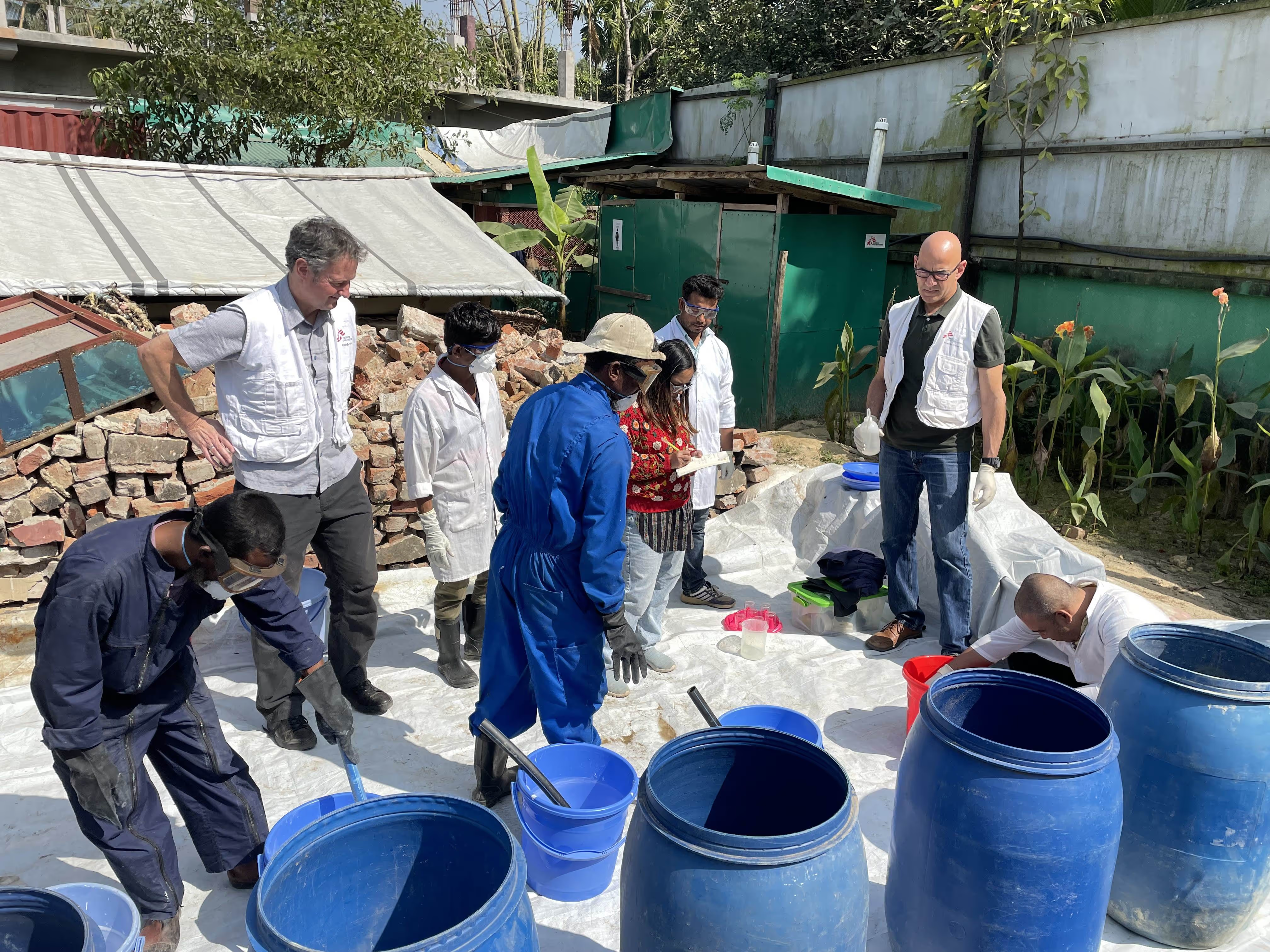

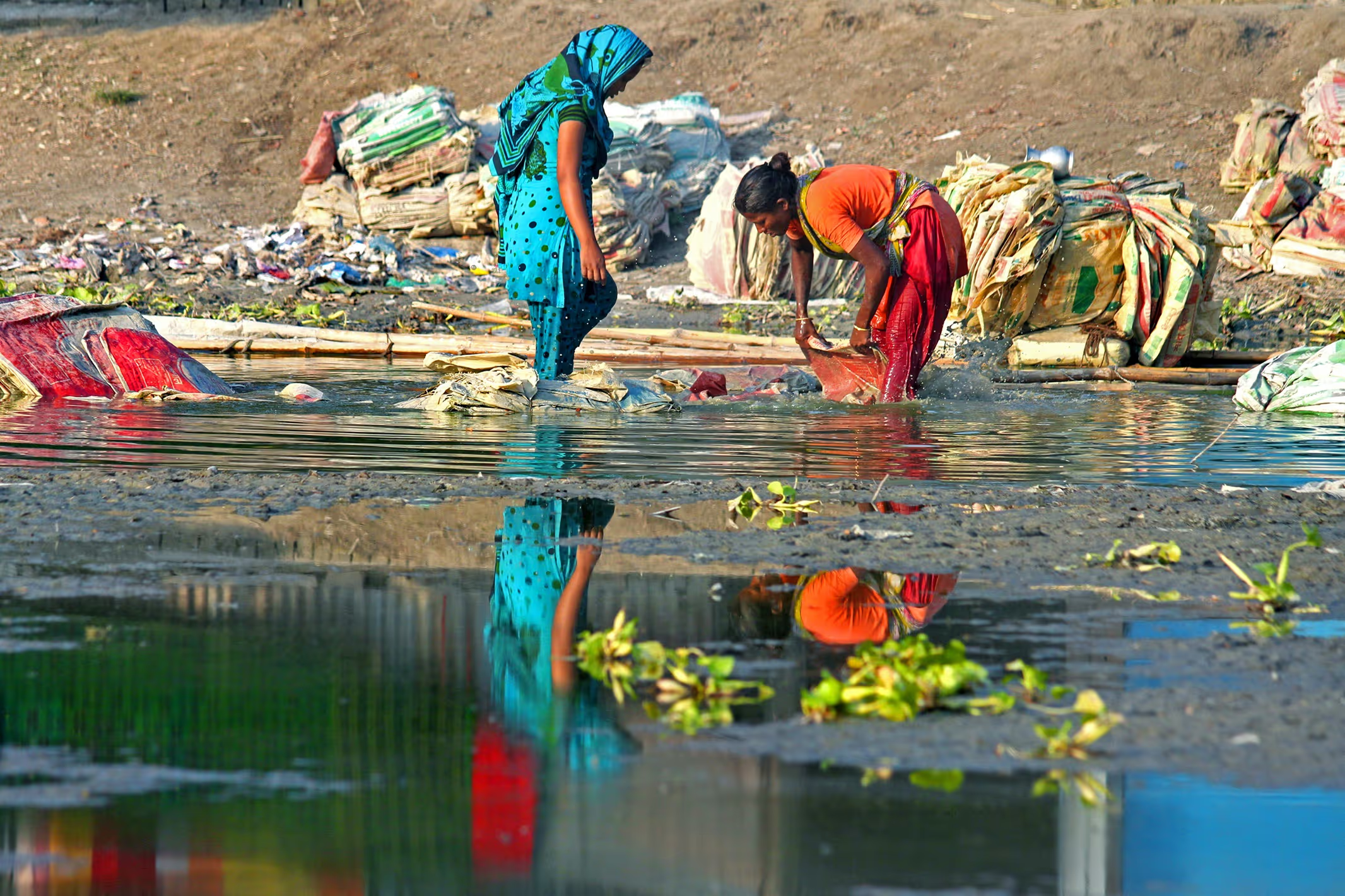
Explore Elrha
Learn more about our mission, the organisations we support, and the resources we provide to drive research and innovation in humanitarian response.